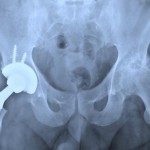People with high intelligence may be less likely to develop schizophrenia, particularly those who have a genetic susceptibility to the condition. This is according to a new study published in The American Journal of Psychiatry. People with a high IQ may be less likely to develop schizophrenia than those with a low IQ.The researchers, including first author Dr. Kenneth S. Kendler of the Virginia Commonwealth University, say their findings challenge past studies indicating that people who are intelligent are more likely to be mentally ill.“If you’re really smart, your genes for schizophrenia don’t have much of a chance of acting,” says Dr. Kendler.Schizophrenia is a disabling brain disorder that affects around 2.4 million adults in the US. Onset of the condition usually occurs in early adolescence, and it is characterized by hallucinations, delusions, abnormal thoughts and agitated body movements. The exact causes of schizophrenia are unclear, but scientists have established that the disorder is familial; around 1% of the general population have schizophrenia, but it occurs in around 10% of people who have have a →
People with a high IQ may be less likely to develop schizophrenia than those with a low IQ.The researchers, including first author Dr. Kenneth S. Kendler of the Virginia Commonwealth University, say their findings challenge past studies indicating that people who are intelligent are more likely to be mentally ill.“If you’re really smart, your genes for schizophrenia don’t have much of a chance of acting,” says Dr. Kendler.Schizophrenia is a disabling brain disorder that affects around 2.4 million adults in the US. Onset of the condition usually occurs in early adolescence, and it is characterized by hallucinations, delusions, abnormal thoughts and agitated body movements. The exact causes of schizophrenia are unclear, but scientists have established that the disorder is familial; around 1% of the general population have schizophrenia, but it occurs in around 10% of people who have have a →
Past research has documented the benefits of weight-loss surgery, or bariatric surgery, for patients who are severely overweight. In November 2014, for example, Medical News Today reported on a study claiming weight-loss surgery is highly effective for preventing type 2 diabetes. Other studies have found weight-loss surgery may also reduce the risk of heart disease and even some types of cancer for patients who are obese. But according to lead investigator Dr. Emily Dodwell, an orthopedic surgeon at the Hospital for Special Surgery (HSS) in New York, NY, and colleagues, how weight-loss surgery affects patient outcomes for joint replacements was unclear. “We know that bariatric surgery is a cost-effective intervention for morbid obesity,” notes study co-author Dr. Alexander McLawhorn, a chief orthopedic surgery resident at HSS. “Yet, the cost-effectiveness of bariatric surgery to achieve weight loss prior to joint replacement and thus decrease the associated complications and costs in morbidly obese patients was unknown.” Findings may help ‘re-evaluate weight-loss surgery as a covered benefit’ With →
Other studies have found weight-loss surgery may also reduce the risk of heart disease and even some types of cancer for patients who are obese. But according to lead investigator Dr. Emily Dodwell, an orthopedic surgeon at the Hospital for Special Surgery (HSS) in New York, NY, and colleagues, how weight-loss surgery affects patient outcomes for joint replacements was unclear. “We know that bariatric surgery is a cost-effective intervention for morbid obesity,” notes study co-author Dr. Alexander McLawhorn, a chief orthopedic surgery resident at HSS. “Yet, the cost-effectiveness of bariatric surgery to achieve weight loss prior to joint replacement and thus decrease the associated complications and costs in morbidly obese patients was unknown.” Findings may help ‘re-evaluate weight-loss surgery as a covered benefit’ With →


